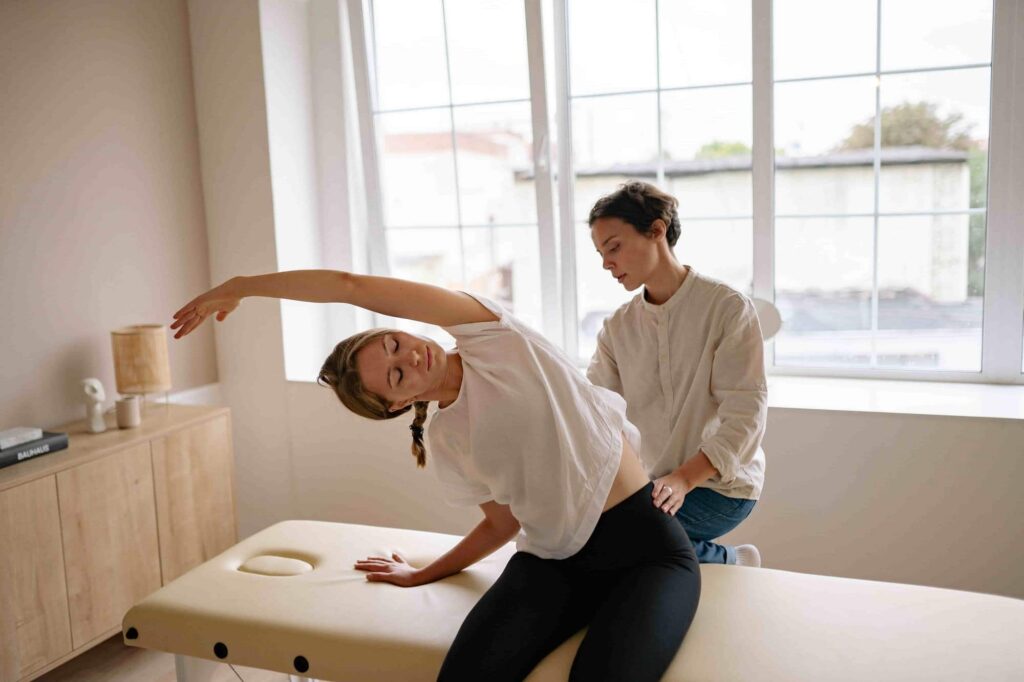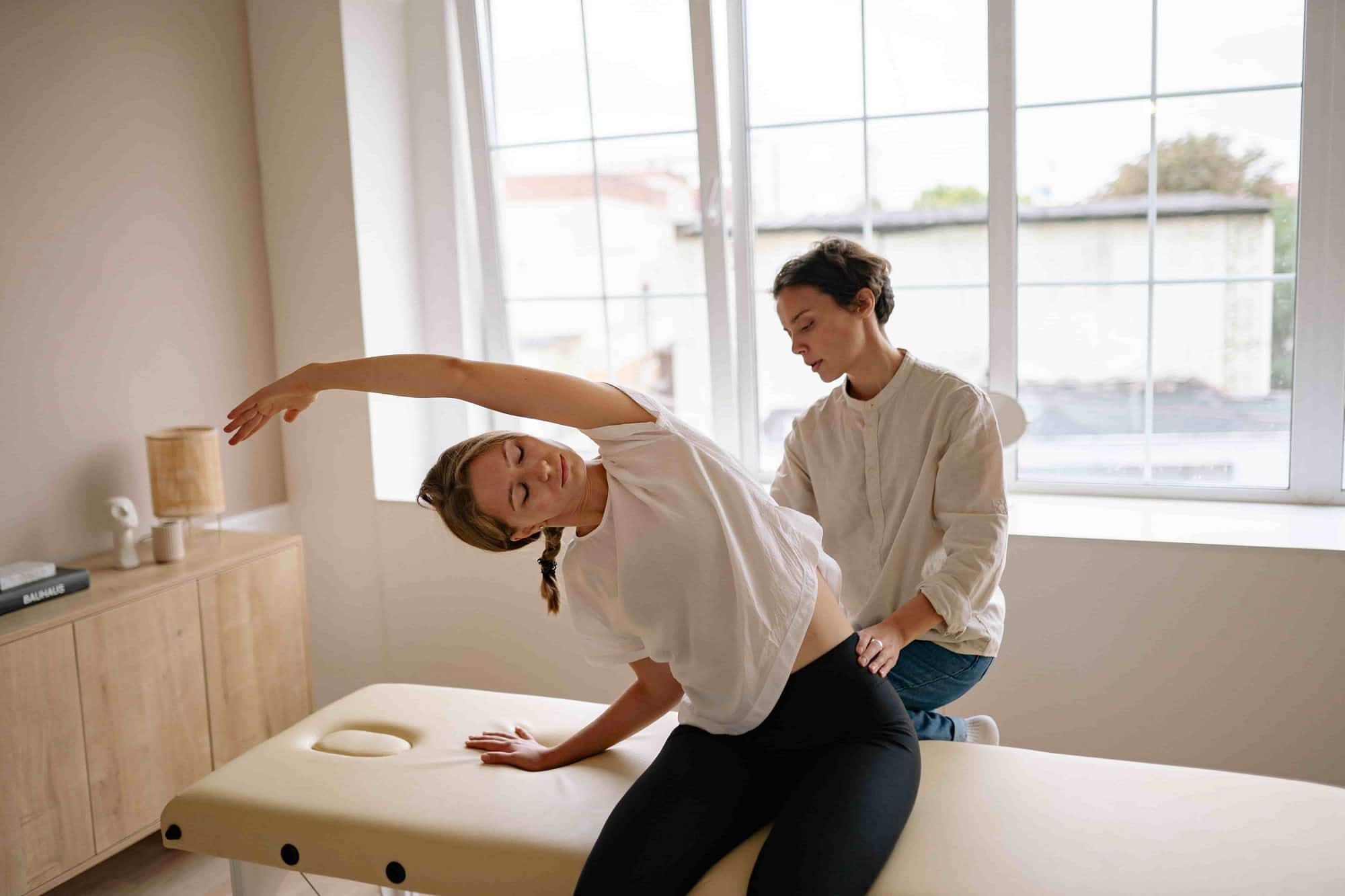Getting a good night’s sleep is essential for overall well-being and productivity. However, many people struggle with falling asleep, and stress or tension can be a significant barrier to restful slumber. In this comprehensive guide, we will explore a series of relaxing stretches that can help you unwind, reduce stress, and improve your chances of falling asleep faster and sleeping more soundly.
The Importance of Sleep
Before we delve into the specific stretches, let’s briefly highlight the significance of sleep for your health:
- Restoration: Sleep is a time for your body to repair tissues, consolidate memories, and restore energy levels.
- Mental Health: Quality sleep is essential for maintaining good mental health, reducing stress, and improving mood.
- Physical Health: Lack of sleep can increase the risk of chronic conditions like obesity, diabetes, and heart disease.
The Role of Stretches in Sleep
Stretching before bedtime can help relax your muscles, release tension, and prepare your body for rest. It’s an excellent way to signal to your body that it’s time to wind down and promote a sense of calm. Here are some effective stretches to help you fall asleep faster:
Gentle Neck Stretches
| Stretch | Description |
|---|---|
| Neck Tilt | Sit or stand with your back straight. Slowly tilt your head to one side, bringing your ear toward your shoulder. Hold for 15-30 seconds, then switch sides. |
| Neck Rotation | Gently turn your head to one side, bringing your chin toward your shoulder. Hold for 15-30 seconds and repeat on the other side. |
| Neck Flexion | Slowly lower your chin toward your chest, feeling a stretch in the back of your neck. Hold for 15-30 seconds. |
Relaxing Shoulder Stretches
| Stretch | Description |
|---|---|
| Shoulder Roll | Sit or stand with your arms relaxed at your sides. Slowly roll your shoulders forward and then backward in a circular motion. Repeat for 30 seconds. |
| Cross-Body Arm Stretch | Extend one arm across your chest and gently pull it toward your body with the opposite hand. Hold for 15-30 seconds and switch sides. |
| Shoulder Blade Squeeze | Sit up straight and clasp your hands behind your back. Squeeze your shoulder blades together, opening your chest. Hold for 15-30 seconds. |
Calming Spine Stretches
| Stretch | Description |
|---|---|
| Cat-Cow Stretch | Begin on your hands and knees in a tabletop position. Arch your back like a cat, then lower it into a cow stretch. Repeat for 1-2 minutes. |
| Child’s Pose | Kneel on the floor with your toes touching and knees apart. Sit back on your heels and extend your arms forward on the floor. Hold for 1-2 minutes. |
| Supine Twist | Lie on your back with your arms extended to the sides. Bring one knee toward your chest, then gently lower it across your body, keeping your opposite shoulder on the ground. Hold for 15-30 seconds and switch sides. |
Soothing Hip and Leg Stretches
| Stretch | Description |
|---|---|
| Seated Forward Bend | Sit with your legs extended in front of you. Hinge at your hips and reach for your toes. Hold for 15-30 seconds. |
| Butterfly Stretch | Sit with your feet together and knees bent outward. Hold your feet with your hands and gently press your knees toward the floor. Hold for 15-30 seconds. |
| Legs Up the Wall | Lie on your back near a wall and extend your legs up, resting them against the wall. Relax in this position for 5-10 minutes. |
Deep Breathing and Relaxation Techniques
Incorporating deep breathing and relaxation exercises along with stretches can enhance the effectiveness of your bedtime routine:
- Diaphragmatic Breathing: Lie on your back with one hand on your chest and the other on your abdomen. Inhale deeply through your nose, allowing your abdomen to rise. Exhale slowly through your mouth. Repeat for several breaths.
- Progressive Muscle Relaxation: Start from your toes and work your way up, tensing and then releasing each muscle group. This technique promotes physical and mental relaxation.

Real-Life Success Stories
Let’s hear from individuals who have experienced the benefits of incorporating bedtime stretches into their nightly routine:
Case 1: Sarah’s Serene Sleep
Sarah, a 32-year-old working professional, often struggled with stress and difficulty falling asleep. After incorporating gentle stretches and deep breathing exercises into her nightly routine, she noticed a significant improvement in her sleep quality. Sarah reported feeling more relaxed and better able to unwind before bedtime.
Case 2: John’s Restful Nights
John, a 45-year-old with a physically demanding job, used to experience muscle tension and discomfort at night. By regularly stretching his neck, shoulders, and back, he found relief from his muscle stiffness and began enjoying restful nights of sleep.
Conclusion
Incorporating stretches into your bedtime routine can be a simple yet effective way to promote relaxation and improve your sleep quality. These stretches help release tension, reduce stress, and prepare your body and mind for restful slumber. Remember to perform these stretches gently and hold each position within your comfort zone. Pairing stretches with deep breathing and relaxation techniques can further enhance their calming effects. By dedicating a few minutes to stretching and relaxation before bedtime, you can significantly improve your sleep and wake up feeling refreshed and rejuvenated. Sweet dreams!















